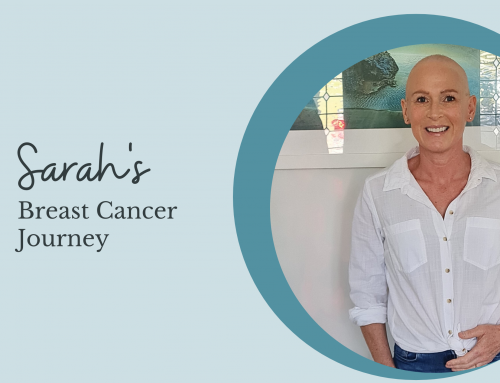Facing a cancer diagnosis is a journey filled with physical challenges, but often overlooked are the emotional effects that can deeply impact patients. From the initial shock of diagnosis to the ongoing stress of treatment and beyond, cancer can trigger a range of complex emotions, including fear, anxiety, anger, sadness, and uncertainty. It’s important to acknowledge that these feelings are normal. Through practical strategies, mindfulness techniques, and supportive resources, we empower patients to cultivate resilience, find meaning in their journey, and embrace a path of healing from within. Remember: what works for someone else might not work for you. It’s important to focus on what feels right for your body, rather than comparing yourself to others. Take the time to listen to your own needs and find what truly supports your well-being.
Feeling Overwhelmed
When faced with a cancer diagnosis, it’s common to feel as if life is spiralling out of control. The uncertainty of the future, disruptions to daily routines, and the barrage of medical information can leave patients feeling helpless and isolated. From grappling with complex medical jargon to managing treatment schedules, the sheer weight of the diagnosis can be paralysing. It’s important to remember that this life-changing event doesn’t need to be taken on alone.
Reaching out for support from loved ones and healthcare professionals can provide a much-needed lifeline during this challenging time. Simply having someone to talk to and share your thoughts and feelings with can be a gentle first step towards acceptance. Whether it’s a trusted friend, family member or a compassionate healthcare provider, having someone to lean on can help ease the burden of processing the avalanche of information that often accompanies a cancer diagnosis. Remember, you don’t have to navigate this journey alone—reach out, and let others help you carry the weight.
Coping with Fear, Stress and Anxiety
The fear of pain, sickness, and the unknown can be incredibly burdensome for cancer patients. Many anxieties surrounding cancer are rooted in myths or misinformation, which can exacerbate worries and uncertainties. Concerns about treatment side effects, financial strain, how treatment will affect work and day-to-day routines, and the impact on loved ones can also intensify feelings of anxiety and worry.
To address these looming concerns, seeking reliable information, asking questions, and staying informed can help empower patients to navigate their journey with greater confidence.
Educating yourself about your illness and treatment options not only sheds light on the unknown but also empowers you to make informed decisions about your care. Research also suggests that individuals who are well-informed about their condition are more likely to adhere to treatment plans and experience faster recovery times.
To educate and prepare yourself, you can read about what to expect when starting Chemotherapy Treatment.
We also have an archive of incredible stories from our patients who dared to share their journeys with us, you can read about them through the links below:
- Sarah’s Breast Cancer Journey
- Kirsten’s Melanoma Cancer Journey
- Lisa’s Breast Cancer Diagnosis
- Brian’s Melanoma Cancer Journey
If you’d like to seek help and book a consultation, contact our reception team at 07 5613 2480 during our operating hours from 8:30 am to 4:00 pm.
Acknowledging Anger and Sadness
It’s natural to feel a range of emotions when facing a cancer diagnosis, including anger and sadness. These emotions can stem from various sources, such as fear of the unknown, frustration with the disruption of daily life, or resentment towards the situation itself. Acknowledging these feelings is an essential part of the healing process.
Anger often arises from feelings of helplessness, frustration, or unfairness. It’s okay to be angry about your diagnosis and the challenges it brings. Expressing your anger healthily, such as talking to a trusted friend or counsellor, can help you process these emotions and prevent them from festering.
Similarly, sadness is a common response to the changes and losses that accompany cancer. You may mourn the loss of your previous lifestyle, physical health, or sense of control. Allow yourself to grieve these losses and seek support from loved ones or support groups who can offer comfort and understanding.
While it’s normal to experience anger and sadness, it’s essential not to let these emotions consume you. Practice self-compassion and be gentle with yourself as you navigate this challenging journey. Remember that it’s okay to seek professional help if you’re struggling to cope with these emotions on your own.
Navigating Guilt and Loneliness
Guilt and loneliness are common emotions experienced by many cancer patients, but acknowledging and addressing these feelings can help alleviate their impact on mental well-being.
Guilt may arise from various sources, such as feeling like a burden to loved ones, missing out on work or social activities, or even believing that lifestyle choices contributed to the illness. It’s essential to recognize that cancer is not your fault, and these feelings are a natural response to a challenging situation. Talking to a trusted friend, counsellor, or support group can provide reassurance and perspective, helping to alleviate feelings of guilt.
Loneliness often accompanies a cancer diagnosis, as patients may feel isolated from friends, family, or their usual support network. Patients may feel like no one truly understands what you’re going through, or refrain from reaching out to avoid causing any trouble among friends. It’s crucial to reach out for support during this time, whether through loved ones, support groups, or online communities. Connecting with others who understand your experience can provide comfort and companionship, reducing feelings of loneliness and fostering a sense of belonging.
Embracing Gratitude and Cultivating Hope
During the challenges brought by a cancer diagnosis, finding moments of gratitude and nurturing hope can provide profound sources of strength and resilience.
Gratitude allows us to focus on the positive aspects of life, even in the face of adversity. It involves acknowledging the blessings, big or small, that surround us each day. Whether it’s the support of loved ones, moments of joy, or the beauty of nature, practising gratitude can shift our perspective and bring a sense of peace amidst turmoil. Keeping a gratitude journal, where you jot down things you’re thankful for each day, can be a powerful way to cultivate this mindset.
Hope, too, is a powerful force that fuels resilience and perseverance. Holding onto hope can provide a guiding light through the uncertainties of a cancer journey, inspiring courage and determination. Finding hope may involve setting realistic goals, visualising positive outcomes, or drawing strength from stories of survival and resilience. Engaging in activities that bring joy and meaning can also nurture hope and optimism.
Here are additional ways to manage your emotions and promote well-being:
Express Yourself
Find healthy outlets to express your emotions, whether it’s through talking with loved ones, writing in a journal, or engaging in creative activities like art or music.
Stay Active
Regular physical activity can help reduce stress, anxiety, and depression. Even gentle exercises like walking or yoga can have a positive impact on your mood and overall well-being.
Practice Mindfulness
Incorporate mindfulness practices into your daily routine to stay present and grounded. Techniques such as meditation, deep breathing, and progressive muscle relaxation can help calm your mind and reduce emotional distress.
Seek Professional Help
Don’t hesitate to reach out to mental health professionals or support groups for additional support. Therapy, counselling, or support groups can provide a safe space to explore your feelings and learn coping strategies.
Maintain a Healthy Lifestyle
Focus on self-care by prioritising healthy habits such as getting enough sleep, eating nutritious foods, and avoiding excessive alcohol or caffeine. Taking care of your physical health can positively impact your emotional well-being.
Set Boundaries
It’s okay to say no to additional responsibilities or commitments during this challenging time. Set boundaries to protect your time and energy, and prioritise activities that bring you joy and fulfilment.
Stay Connected
Stay connected with friends, family, and support networks who can provide emotional support and encouragement. Share your experiences and lean on others for support when needed.
Remember, coping with cancer is a journey, and it’s okay to have ups and downs along the way. Be gentle with yourself, practice self-compassion, and know that you are not alone.
At Tasman Health Care, we are committed to ensuring that our patients have access to the most comprehensive and personalised care possible. If you have any questions or would like to discuss anything about your healthcare journey, please don’t hesitate to contact our team.
You can book an appointment at 07 5613 2480 during our operating hours from 8:30 am to 4:00 pm. We’re here to support you every step of the way.
Please be advised that this advice is of a general nature only and you should always consult your Doctor for information regarding your own individual treatment.
Tasman Health Care is an Oncology clinic and research-focused group based on Queensland’s Gold Coast. We have an onsite Day Infusion Unit and specialise in Cancer care and treatment. We also provide a large percentage of our patients, insured or uninsured, the opportunity to access new pharmaceuticals only available through a trial opportunity.
To make an appointment with one of our Doctors, Genetic Counsellors or team of Allied Health Specialists please contact us (07) 5613 2480 or reception@tasmanhealthcare.com.au.






